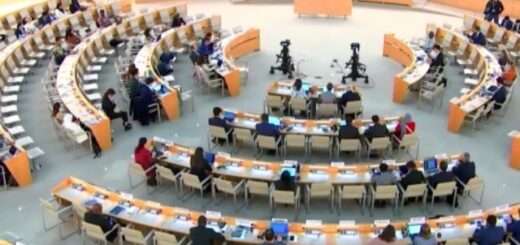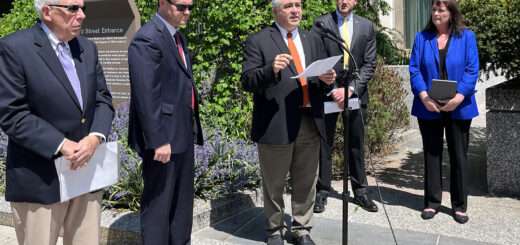The Pan-Armenian Diplomatic Council (PADC) accused the government of using “dirty” methods to try to stifle the protests launched on April 20 by residents of villages in the northern Tavush province adjacent to those areas. People from other parts of Armenia have joined their nonstop sit-in on a national highway practically passing through one of those villages, Kirants. Other Armenians have briefly blocked roads across the country in a show of solidarity with the Tavush protesters.
“The ruling regime’s manipulative attempts to localize at any cost the so-called border delimitation, which is in fact an illegal process of unilateral concessions, unfolding in Tavush have failed because contrary to its expectations, the national movement ‘Tavush for the Homeland’ formed by people of Tavush has spread throughout Armenia,” read a statement released by the PADC.
“This struggle is not just about Tavush, it is about Armenia and all Armenians. It is a struggle against lies and deceit and for truth and justice,” it said.
The PADC condemned Pashinian’s government for launching what it called a smear campaign against the Armenian Apostolic Church and, in particular, the head of its Tavush Diocese, Archbishop Bagrat Galstanian. The latter has emerged as the most influential leader of the protests.
The PADC was set up last month by former Foreign Minister Ara Ayvazian and several other retired diplomats who served both before and during Pashinian’s rule. Like Armenian opposition leaders, they have denounced the territorial concessions to Baku, dismissing Pashinian’s claims that they will reduce the risk of another Azerbaijani attack on Armenia.
“The people should rise up to the halt this process,” Vahagn Melikian, a former Armenian Foreign Ministry undersecretary, said during a roundtable discussion held by the PADC on Monday.
In a joint statement, its participants effectively called for Pashinian’s removal from power, saying that Armenia badly needs a “qualitatively new government” that can deal with grave security threats facing the country. The current government’s “defeatist and adventurist” foreign policy is only adding to those threats, they charged.
“We need skilled, smart, national visionary leaders more than ever before,” Vartan Oskanian, another former foreign minister, said during the gathering. “Today‘s authorities do not fit any of these characteristics.”









